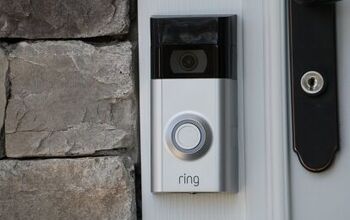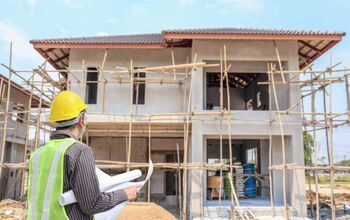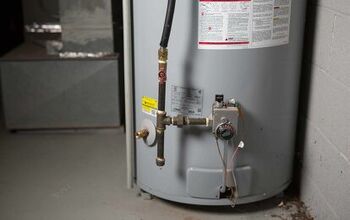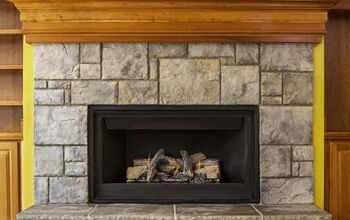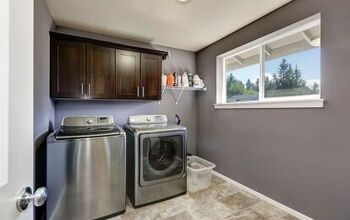How To Report A House That Should Be Condemned (It's Super Easy!)

A condemned house is one that the government has decided is unfit for any occupants. The government will seize any condemned property and all occupants must then vacate the property.
This can happen for a variety of reasons and is usually used as a last resort to get the owner to do something about a dilapidated building.
In order to report a house that you believe is unsafe for human habitation, you can start contacting the landlord and reporting the issues. They will have a certain amount of time to correct these.
If the landlord fails to do anything, contact the local health inspector. They will arrange for an in-home inspection in order to check for health code violations. You can also call the plumbing and electrical inspectors, describing the conditions in which you think are unsanitary or unsafe.
Related Content: Is Your Landlord Not Fixing Things? | How To Get Your Landlord In Trouble | How To Identify Black Mold | How Long Does Termite Tenting Last?
Landlord Responsibilities
The landlord is the party responsible for keeping a rental property in a habitable condition. There are many reasons for a house to be condemned and nearly all of them fall on the shoulders of the property owner’s negligence.
All tenants have a right to a safe and hospitable dwelling unit. This includes many different things, but all of them allow for the area in which you live to be free of harmful conditions.
Reporting Issues to the Landlord
There are a number of issues that you, as a tenant, should report to your landlord. These are:
- Lack of Utilities: All tenants have the right to vital services within their home. This includes running water, heat, and electricity. If one or all of these is missing, or the landlord is in charge of paying for these and doesn’t (resulting in them being shut off), this is a violation of the law.
- Non-Working Plumbing Fixtures: All tenants have a right to functioning plumbing within their rental unit.
- Waste Removal: If the garbage and waste is not removed from a property, tenants have a right to report this to the health inspector. This would contribute to unsanitary living conditions.
- Structural Issues: If a collapsed floor, leaking roof, or other structural issues are present, the landlord is responsible for repairing these immediately. This also includes proper locks on the doors and windows, adequate lighting, and well-maintained stairs and floors.
- Mold: Mold within a living space is very dangerous and can cause severe health effects. This is one of the more common complaints against landlords that gets reported to the health department.
- Pests: If a house has an infestation of mice, rats, roaches, bed bugs, or other pest issues, this must be fixed by the landlord.
Reporting Unsanitary and Unsafe Conditions:
In most cases, you will need to notify the landlord and give them an opportunity to take care of the issues, before filing a complaint with the health department. If the issues are numerous, the damage severe, or conditions incredibly unsafe, you should contact the local health department immediately.
Step 1: Written Notice
Once you notice something wrong with your dwelling unit, you must send a notice to the landlord about the issue. This will give them time to fix the problem if they were unaware of it.
Check your states landlord-tenant laws to see how much time they have to fix the problem before you take further action.
Step 2: File a Complaint
If your landlord has not done anything to fix the problem, or the steps taken have not resolved the issue, you need to file a complaint with the local health department.
You will need to inform them of:
- Your name
- Address
- Name of Landlord or Property Management Company
- Nature of the complaint
- Beginning of the Problem
- Length of the problem/occurrence Rate
- If the Landlord has been contacted
- The landlord’s response
Health Department Inspection
From here, the health department will take the steps necessary to determine the validity of your complaint, by:
Step 1: Inspecting the property
An inspector from the health department will inspect the property, checking on the complaints to make sure they are valid. They will also note any other health violations that they come across during their inspection.
Step 2: Prepare the Report
Once they have completed their inspection, they will put together a report of their findings. This will include all the specifics, such as: Address, date of inspection, all health violations, as well as the time frame given to the landlord to address these issues.
Step 3: Send Report and Violations to the Landlord
This official document is presented to the landlord to make clear any and all violations within their building. They will be given a deadline to when they need to fix any outstanding issues. Once they have been fixed, the landlord will contact the health inspector who will then come out to re-inspect the property.
If, during the inspection, the inspector cites issues that make the home unsafe to live in, they may not give the landlord the option to make repairs. Instead, the board of health may issue a finding that the dwelling, or portion of the dwelling, is unfit for human habitation.
Step 4: Fining the Landlord
If the landlord has not fixed the health violations within the given amount of time, the health department can fine the landlord.
Condemning a House
A house is condemned when the property owner has failed to make the correct repairs to the issues that were determined by the state health or building inspector. They are often given time to fix the problems that were cited in the report and fined if not. At a certain point, the house will be condemned as the landlord will be found negligent.
The reasons for a home to be condemned are:
- If the building has been vacant and boarded up for a period longer than 60 days.
- If the utilities to the building have been disconnected.
- During an inspection, the inspector cites hazards that render the home unsafe to live in.
- If the building is dilapidated.
- An infrastructure failure
- Unsanitary living conditions
- Weather catastrophes causing structural damage
- Black mold
- Extensive termite damage
- Built with unsafe materials
When a House is Condemned
Most condemned houses have been a result of safety concerns due to poor sanitation, plumbing or electrical issues, and whatever else could make it inhabitable. If a home has too many code violations this can also lead to it being condemned.
It is usually triggered by a pattern of unsafe housing code violations that have been levied against the landlord and ignored. When a landlord chooses not to fix problems that inspectors have brought to their attention, the house will become condemned.
No one is legally allowed to live in or use a condemned building until the owner has proven that the issues have been resolved. If these issues are not fixed, anyone living within this building will be forced to move out.
To enforce this, the government may shut down all utility services to the property to make sure that it is inhabitable. A sign will be posted publicly on the front of the building, notifying in writing that the building cannot be occupied.
Related Questions
Who Do You Call When your Apartment is not Up to Code?
If your landlord has not taken the steps to fix the issues, you should file a complaint with your local health department. They will send out an inspector to go over the complaint and verify the validity of your statement.
Will Black Mold Condemn a House?
Black mold is one of the most dangerous infestations to have. Not only is it musty and causes damage to the walls and floors of the house, but it also carries massive health risks. All states reserve the right to condemn a house if it is deemed hazardous and an unchecked black mold issue would fall under that category.
What if My House Has Been Condemned?
Most jurisdictions allow tenants to withhold rent if a landlord fails to maintain the rented space, making it inhabitable. If you have been kicked out of your home due to it being condemned, you have certain rights. There are government agencies responsible for helping disadvantaged tenants keep from being taken advantage of in these situations.You should also reach out to an attorney to see what your next steps are, as you may find yourself suddenly without a home.
Related Guides

Sean Jarvis is an interior decorator, writer, and expert handyman. Well versed in everything home improvement, he is a savant at manipulating words and spaces and upgrading everything around him. Sean specializes in writing concise guides about appliance repair and installation, home and lifestyle, and other residential projects.
More by Sean Jarvis



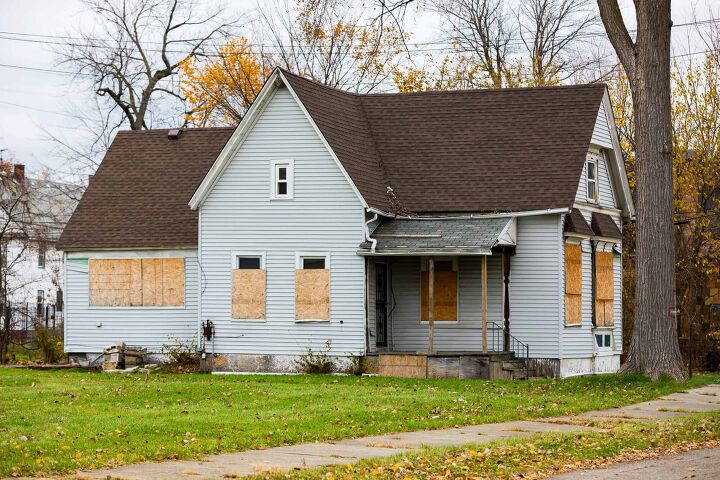







![10 Best Zero Turn Mowers – [2022 Reviews & Ultimate Buyer's Guide]](https://cdn-fastly.upgradedhome.com/media/2023/07/31/9070522/10-best-zero-turn-mowers-2022-reviews-ultimate-buyer-s-guide.jpg?size=350x220)
![10 Best Scroll Saws for 2022 [Ultimate Reviews & Buyer's Guide]](https://cdn-fastly.upgradedhome.com/media/2023/07/31/9070684/10-best-scroll-saws-for-2022-ultimate-reviews-buyer-s-guide.jpg?size=350x220)
![The 10 Best Table Saws - [2022 Reviews & Buyer's Guide]](https://cdn-fastly.upgradedhome.com/media/2023/07/31/9070645/the-10-best-table-saws-2022-reviews-buyer-s-guide.jpg?size=350x220)
